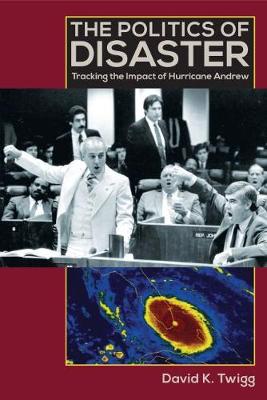From earthquakes to tornados, elected officials' responses to natural disasters can leave an indelible mark on their political careers. In the midst of the 1992 primary season, Hurricane Andrew overwhelmed South Florida, requiring local, state, and federal emergency responses. The work of many politicians in the storm's immediate aftermath led to a curious ""incumbency advantage"" in the general election a few weeks later, raising the question of just how much the disaster provided opportunities to effectively ""campaign without campaigning.""
David Twigg uses newspaper stories, scholarly articles, and first person interviews to explore the impact of Hurricane Andrew on local and state political incumbents, revealing how elected officials adjusted their strategies and activities in the wake of the disaster. Not only did Andrew give them a legitimate and necessary opportunity to enhance their constituency service and associate themselves with the flow of external assistance, but it also allowed them to achieve significant personal visibility and media coverage while appearing to be non-political or above ""normal"" politics.
This engrossing case study clearly demonstrates why natural disasters often privilege incumbents. Twigg not only sifts through the post-Andrew election results in Florida, but he also points out the possible effects of other past (and future) disaster events on political campaigns in this fascinating and prescient book.
- ISBN13 9780813041889
- Publish Date 15 July 2012
- Publish Status Active
- Publish Country US
- Imprint University Press of Florida
- Format Hardcover
- Pages 208
- Language English
